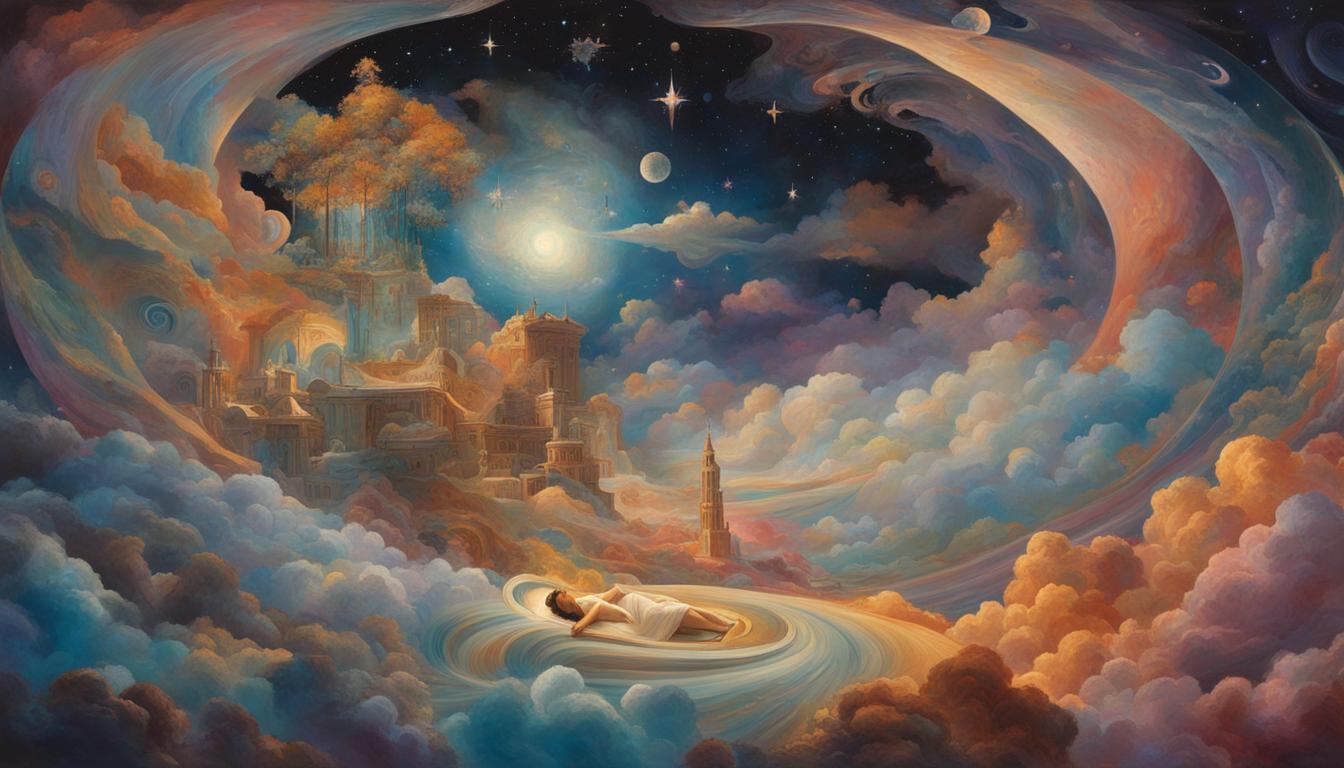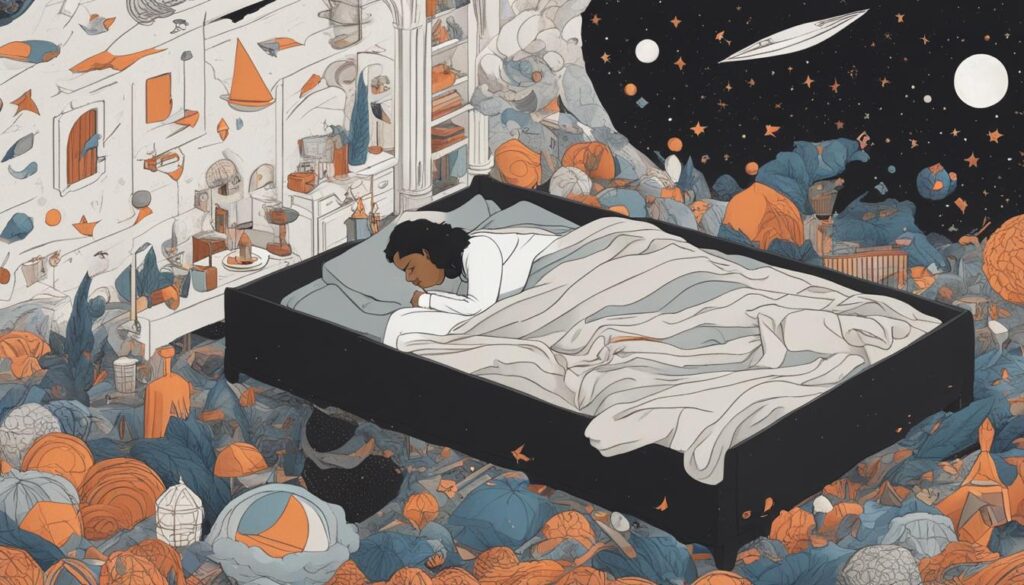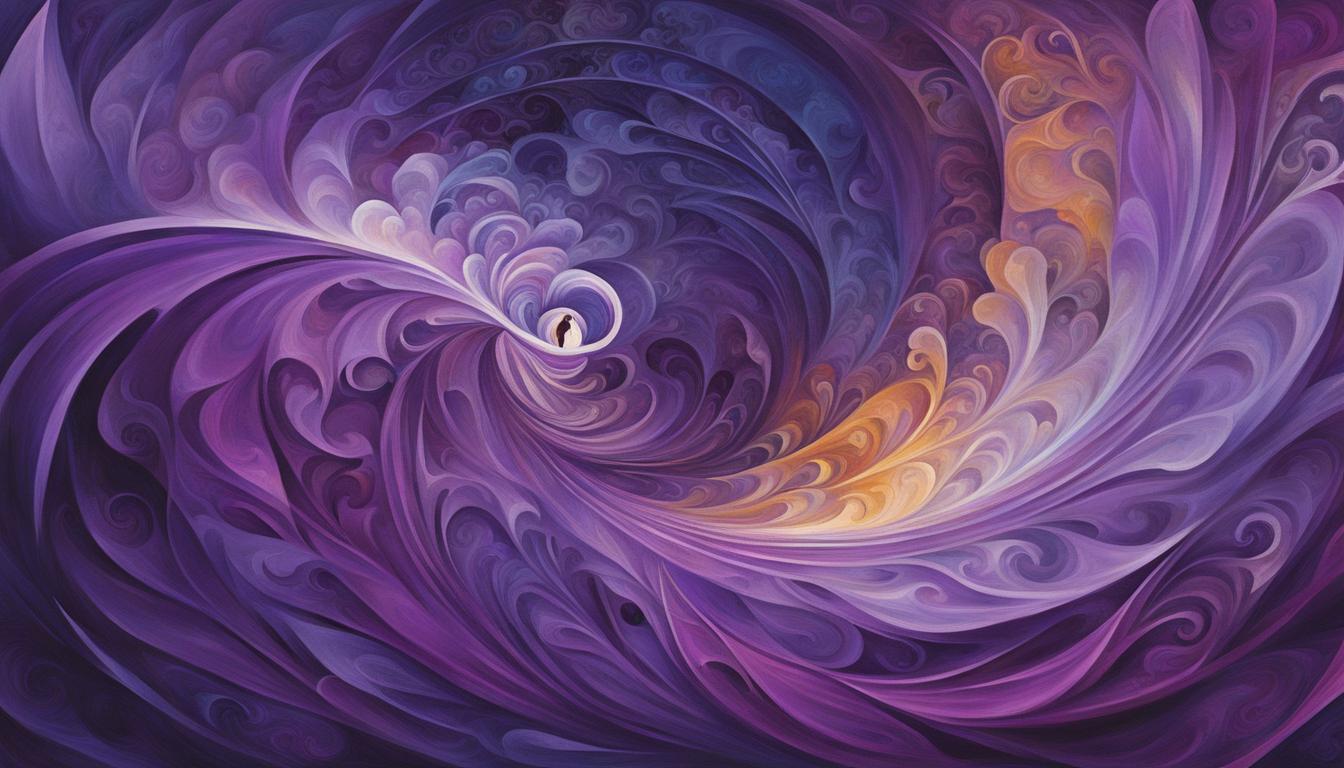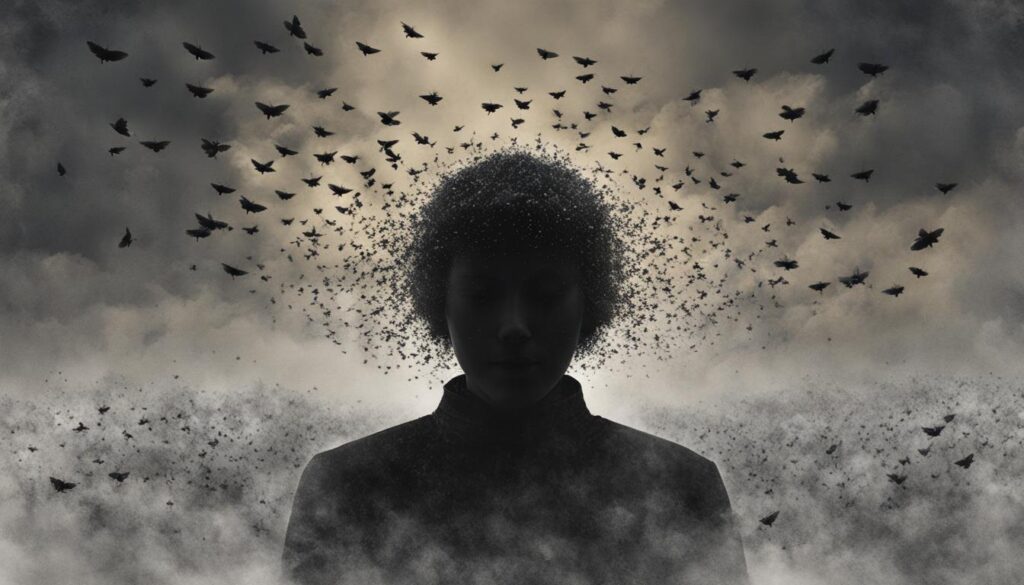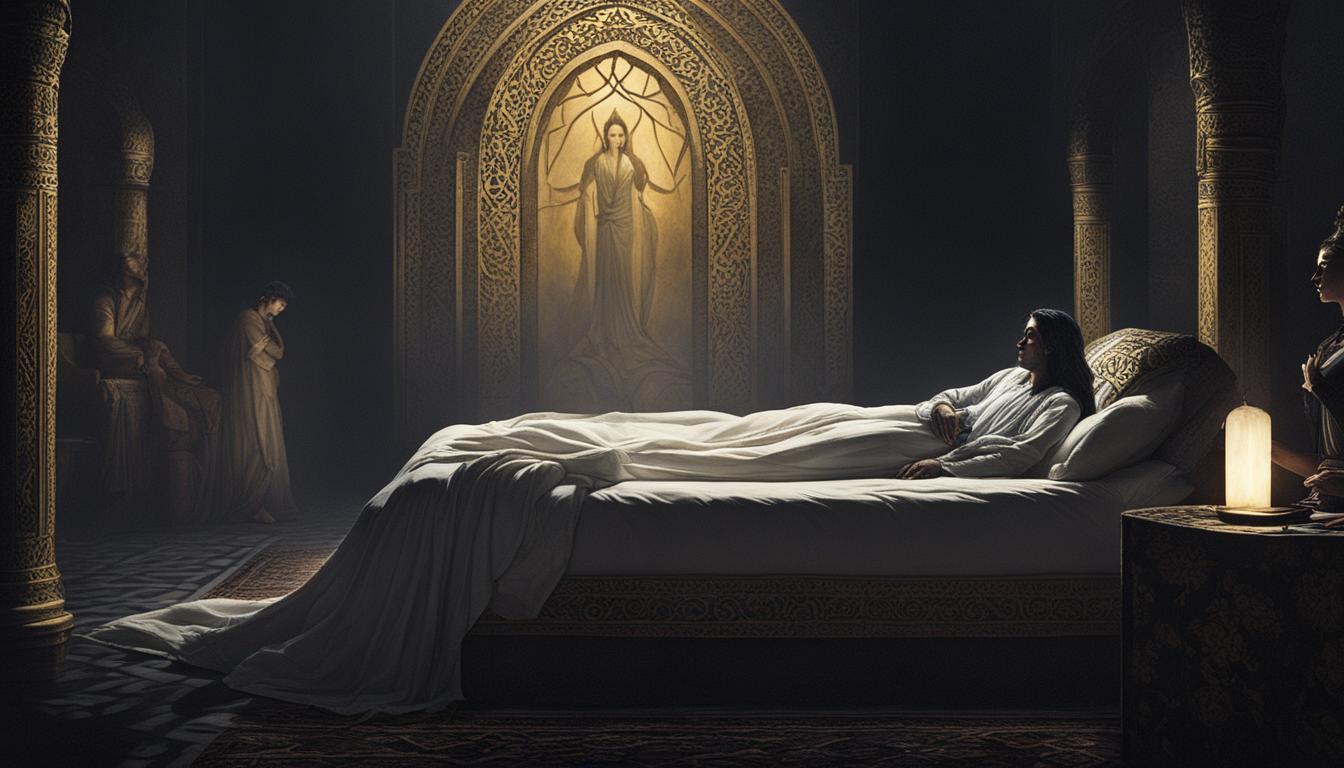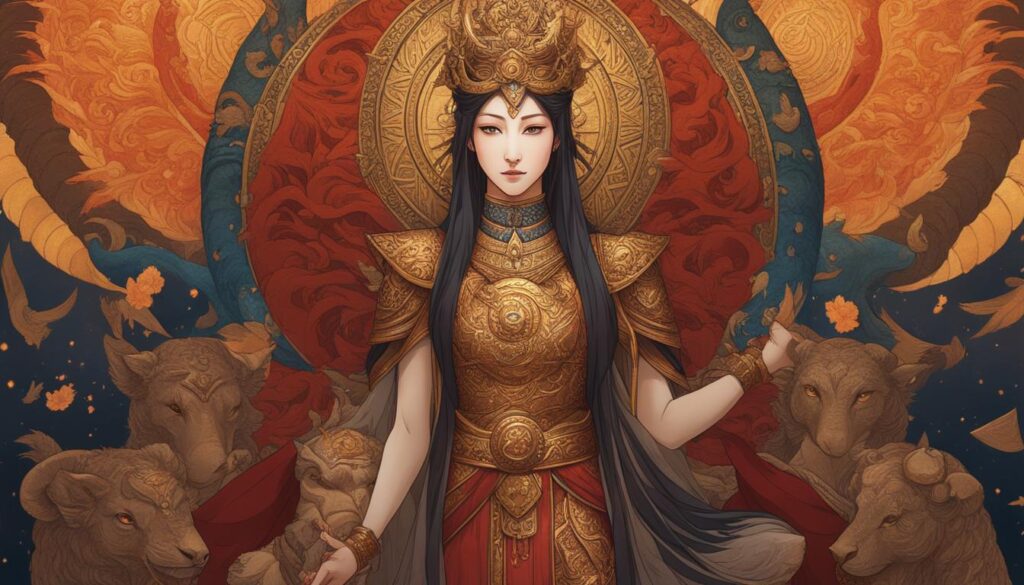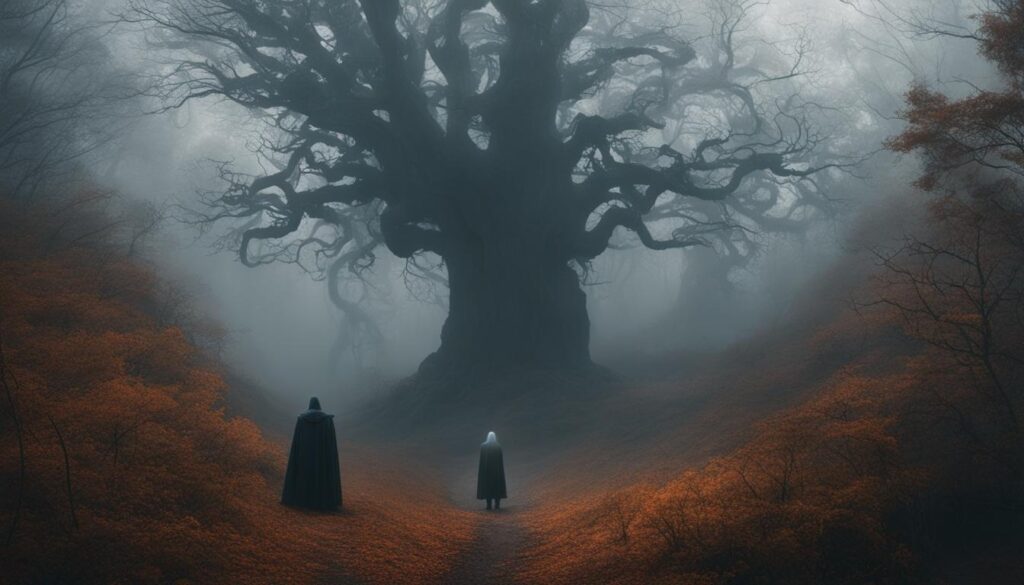Dreams can often serve as a window into our subconscious and offer profound insights into our lives. When a dream includes a pastor, many Christians may wonder about the biblical meaning behind this experience. By examining scripture, symbolism, and personal context, believers can uncover the spiritual guidance that these dreams may provide. This article delves into the importance of dream interpretation in Christianity and explores the potential significance of encountering a spiritual leader within our dreamscape.
In this article, we delve into the importance of dream interpretation in Christianity and explore the potential significance of encountering a spiritual leader within our dreamscape. We examine the biblical basis for dreams as divine communication, provide examples of dreams in the Bible, discuss the symbolism of pastors in dreams, analyze dream context, and offer practical tips for applying dream interpretation to personal life.
Key Takeaways:
- Examining dreams from a biblical perspective can provide spiritual insights and guidance.
- Pastors appearing in dreams may symbolize a need for spiritual guidance, divine wisdom, or personal growth.
- Interpreting dreams involves analyzing the dream’s context, personal circumstances, and emotional state.
- Dreams featuring pastors can inspire believers to deepen their spirituality, seek counsel, and serve their spiritual community.
- Applying dream insights to personal life through reflection and action can lead to a richer spiritual journey.
Dreams as Divine Communication in Christianity
In Christianity, dreams have long been considered a way for God to communicate with His followers. From Joseph’s prophetic dreams in the Old Testament to visions experienced by the apostle Paul in the New Testament, dream interpretation has played a pivotal role in understanding God’s will and guidance. As such, dreams featuring a pastor can be seen as an opportunity for believers to discern divine messages and apply them to their lives, fostering spiritual growth and a stronger connection to their faith.
Throughout the Bible, dreams have served as a channel for divine communication, often carrying significant meaning and guidance. These dreams provide insights and direction for believers, helping them discern God’s will and navigate their spiritual journey. Dream interpretations can unlock hidden truths, reveal personal revelations, and provide instructions for believers to follow.
When a dream includes a pastor, it holds even greater significance for Christians. Pastors are seen as spiritual leaders and shepherds in the Christian community, responsible for guiding and nurturing their flock. Their presence in a dream can symbolize the need for spiritual guidance, mentorship, or divine intervention. By paying attention to the message embedded within dreams, believers can gain valuable insights that can shape their lives and deepen their relationship with God.
The Importance of Dream Interpretation
Dream interpretation is an essential practice for Christians seeking to understand the messages conveyed through their dreams. By examining the symbols, themes, and emotions represented in the dream, believers can uncover the hidden meanings and spiritual guidance embedded within. Dream interpretation helps believers discern divine messages, make sense of their circumstances, and receive direction on how to align their lives with God’s will.
Applying Dream Insights to Life
Once a dream featuring a pastor has been interpreted, it’s crucial for believers to apply the insights gained to their daily lives. This may involve seeking spiritual guidance from a trusted pastor or mentor, deepening one’s prayer life, or actively participating in one’s spiritual community. By embracing the messages received through dreams and taking action, believers can experience personal growth, strengthen their faith, and walk closer to God.
Examples of Dreams in the Bible
The Bible is rich with stories of dreams that hold deep spiritual significance. These dreams serve as a means of divine communication, providing guidance, warnings, and revelations to those who receive them. By examining these examples, we can gain a deeper understanding of the power and importance of dreams in biblical narratives.
Joseph’s Dreams in Genesis
“One night, Joseph had a dream, and when he told his brothers about it, they hated him even more.” – Genesis 37:5
Joseph’s dreams played a pivotal role in his life, revealing his future rise to power in Egypt and his role in preserving the nation during a time of famine. In the first dream, Joseph saw himself and his brothers binding sheaves of wheat in a field, with his brothers’ sheaves bowing down to his. In the second dream, he saw the sun, moon, and eleven stars bowing down to him. These dreams foreshadowed Joseph’s eventual position of authority and his family’s dependence on him during the famine.
Daniel Interpreting King Nebuchadnezzar’s Dreams
“The king asked Daniel (also called Belteshazzar), ‘Are you able to tell me what I saw in my dream and interpret it?'” – Daniel 2:26
In the Book of Daniel, King Nebuchadnezzar had a series of troubling dreams that troubled him. He sought the interpretation of his dreams from his wise men, but they were unable to provide an explanation. Daniel, a servant of God, was called upon to interpret the dreams. Through divine revelation, Daniel interpreted the dreams, revealing God’s sovereignty over earthly kingdoms and foretelling future events. This example showcases the role of dreams in delivering divine messages and conveying important revelations.
Joseph’s Dreams for the Holy Family
“After the wise men were gone, an angel of the Lord appeared to Joseph in a dream. ‘Get up! Flee to Egypt with the child and his mother,’ the angel said.” – Matthew 2:13
The New Testament also features dreams as a means of divine guidance. Joseph, the earthly father of Jesus, had multiple dreams that provided direction and protection for the Holy Family. In one dream, an angel appeared to Joseph, instructing him to take Mary and Jesus and flee to Egypt to escape King Herod’s wrath. In another dream, Joseph was informed that it was safe to return to Israel. These dreams highlighted the importance of listening to and following divine guidance, even in uncertain and challenging times.
| Examples | Biblical Reference |
|---|---|
| Joseph’s dreams of his rise to power | Genesis 37:5-11 |
| Daniel interpreting King Nebuchadnezzar’s dreams | Daniel 2:1-49 |
| Joseph’s dreams for the Holy Family | Matthew 2:13-15, 19-23 |
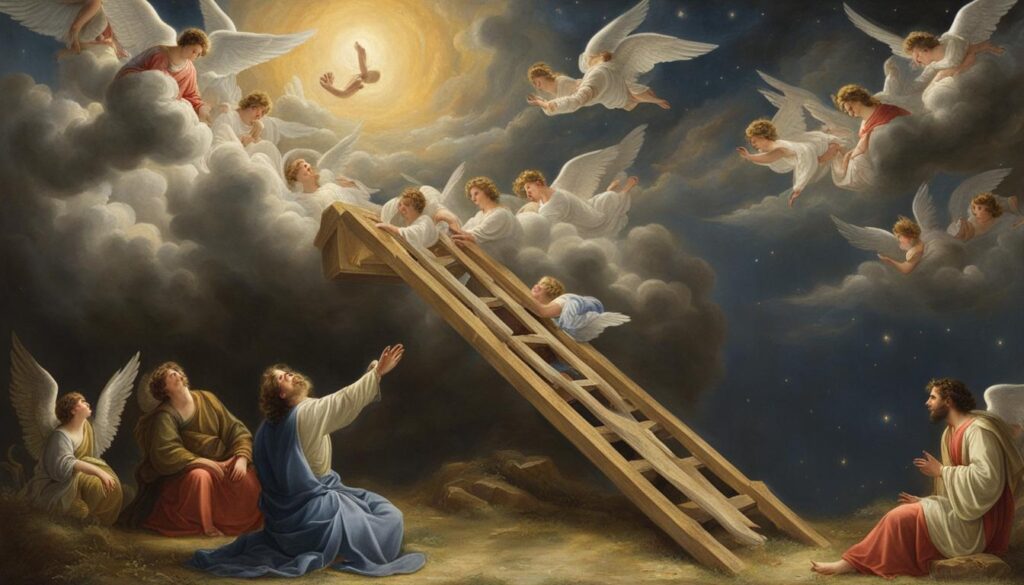
Symbolism of Pastors in Dreams
Pastors, as spiritual leaders, hold significant symbolism in dreams. When a pastor appears in a dream, it often represents a need for spiritual leadership, guidance, or mentorship in the dreamer’s life. Just as a shepherd cares for and guides their flock, a pastor in a dream signifies the dreamer’s desire for someone to help navigate their spiritual journey. This symbolism suggests that the dreamer may benefit from seeking the counsel of a trusted pastor or spiritual advisor.
Furthermore, encountering a pastor in a dream can also indicate the presence of divine guidance and wisdom. Pastors serve as conduits for God’s teachings and are seen as channels through which spiritual knowledge flows. When a dream features a pastor, it may signify that the dreamer should pay closer attention to God’s wisdom through prayer, scripture study, or deep contemplation. The dream serves as a reminder to engage with these spiritual practices and seek a deeper level of understanding.
Additionally, dreams with pastors can symbolize a period of personal spiritual growth or transformation. This suggests that the dreamer is being called to deepen their faith, cultivate a closer relationship with God, or become more actively involved in their spiritual community. By heeding the message of the dream and embracing this opportunity for growth, the dreamer can move forward on their spiritual journey and experience a greater sense of fulfillment and connection with their faith.
| Potential Symbolism of Pastors in Dreams | Interpretation |
|---|---|
| Need for spiritual guidance and mentorship | Seeking wisdom and support from a trusted pastor or spiritual advisor |
| Presence of divine guidance and wisdom | Embracing God’s teachings and seeking deeper spiritual understanding |
| Period of personal spiritual growth or transformation | Deepening faith, developing a closer relationship with God, and engaging in the spiritual community |
Analyzing the Context of the Dream
When interpreting a dream involving a pastor, it’s crucial to consider its specific context and details. Different scenarios can convey different messages, such as a pastor delivering a sermon, offering counsel, or praying with the dreamer. Each of these situations can hold unique meanings and insights. By reflecting on the specific interactions and occurrences within the dream, the believer can better understand the spiritual message being conveyed.
Another important aspect of interpreting dreams is considering the dreamer’s circumstances and emotions. Life events, challenges, and emotional states can influence the meaning of a dream. For instance, if the dreamer faces a difficult decision, a pastor’s presence in the dream may symbolize the need for spiritual guidance and wisdom. Understanding the connection between the dream and the dreamer’s personal experiences is essential for accurate interpretation and application.
By analyzing the context of the dream, individuals can gain deeper insights into the spiritual significance of encountering a pastor in their dreams. This analysis involves examining the specific details and interactions within the dream, as well as considering the dreamer’s personal circumstances and emotional state. By taking these factors into account, believers can unravel the hidden messages and guidance within their dreams, leading to a greater understanding of their spiritual journey.

“Dreams are like a puzzle, and every piece holds meaning. By analyzing the context of the dream, we start to put the pieces together and unlock the message hidden within.” – Dr. Jane Adams, Dream Analyst
Common Themes and Messages
When analyzing dreams featuring a pastor, certain common themes and messages tend to emerge. These themes can provide valuable insights and guidance for the dreamer’s spiritual journey. Below are some of the recurring motifs found in dreams involving pastors:
1. Call to Prayer and Deeper Spirituality
One of the prevalent messages in dreams with pastors is a call to prayer and a deeper connection with spirituality. The presence of a spiritual leader in the dream can serve as a gentle reminder for the dreamer to nurture their relationship with God through prayer, meditation, or other spiritual practices. It may signify the need for a renewed focus on spiritual growth and a closer walk with the divine.
2. Seeking Counsel and Support
Another common theme in dreams featuring pastors is the encouragement to seek counsel and support. If the dreamer is facing challenging circumstances, the presence of a pastor in the dream may indicate the need for guidance from a trusted spiritual advisor. The dream may be urging the dreamer to reach out to a pastor or mentor for advice, encouragement, or assistance in navigating their current situation. This theme highlights the importance of seeking wise counsel when facing life’s challenges.
3. Engaging in Service and Community
A recurring message in dreams involving pastors is the call to engage in service and support the spiritual community. Pastors are often seen as dedicated servants and nurturing leaders within their congregations. Thus, a dream featuring a pastor may signify the dreamer’s own call to take on a more active role in their spiritual community. This could involve volunteering, participating in ministry activities, or simply offering support to those in need. The dream encourages the dreamer to embrace a spirit of service and foster a sense of belonging within their spiritual community.
These common themes and messages in dreams can provide valuable insights into the dreamer’s spiritual journey. By recognizing and contemplating these motifs, the dreamer can gain a deeper understanding of their own faith, as well as discern the guidance and wisdom that their dreams are offering.
Applying Dream Interpretation to Personal Life
Once you have analyzed the context of your dream and considered the possible spiritual messages, it is important to reflect on the meaning behind the dream. This process can involve prayer, meditation, or journaling to help you integrate the insights gained from your dream. By contemplating the significance of the dream, you can better understand your spiritual journey and discern how the dream’s message applies to your life.
After understanding the spiritual meaning behind a dream featuring a pastor, it is essential to consider how to implement the lessons and guidance received. This may involve seeking spiritual counsel, deepening your prayer life, or engaging in acts of service. By implementing these insights, you can nurture your spiritual growth and strengthen your relationship with God.
Remember, dream interpretation is a personal process, and each individual’s experience may vary. Trust your intuition and allow the messages from your dreams to guide you on your spiritual path. Applying dream insights to your life can lead to profound personal transformation and a deeper connection with your faith.
Applying Dream Interpretation: Tips for Integration
- Reflect: Take time to reflect on the dream’s symbols and messages. Consider how they resonate with your current life circumstances and personal experiences.
- Seek Guidance: If the dream feels particularly significant or confusing, reach out to a trusted spiritual advisor or mentor for additional insight and interpretation.
- Take Action: Implement the insights gained from your dream into your daily life. Whether it involves deepening your spiritual practices or seeking support from your faith community, take steps to apply the wisdom received.
- Journal: Keep a dream journal to track recurring symbols, themes, and messages in your dreams. This can help you identify patterns and gain a deeper understanding of your spiritual journey.
Remember, dreams are a unique avenue for communication with the divine. Embrace the messages they bring and allow them to guide you on your spiritual path.
Conclusion
As we reach the conclusion of our exploration into dream interpretation, it becomes clear that dreams featuring a pastor hold significant spiritual meaning. These dreams offer believers a unique opportunity to connect with God and receive divine guidance. By analyzing the context, symbolism, and messages conveyed in these dreams, individuals can uncover valuable insights that can shape their spiritual journey.
Through dream interpretation, we discover that the presence of a pastor in a dream may indicate the need for spiritual guidance, divine wisdom, or personal growth. It serves as a reminder to deepen our relationship with God, seek counsel from trusted spiritual leaders, and engage in acts of service within our spiritual community. By applying the lessons and guidance received from these dreams, believers can nurture their faith and strengthen their connection with the divine.
In conclusion, dream interpretation is a powerful tool that allows us to tap into the profound communication between God and His followers. By embracing the wisdom and guidance hidden within our dreams, we can embark on a journey of spiritual growth, deepen our faith, and experience a richer, more meaningful relationship with God.
FAQ
What is the significance of seeing a pastor in a dream?
Dreams featuring a pastor can symbolize a need for spiritual guidance or mentorship in the dreamer’s life. They may also indicate divine guidance and wisdom, a period of personal spiritual growth, or a call to deepen one’s faith.
Are dreams considered a form of divine communication in Christianity?
Yes, dreams have long been seen as a way for God to communicate with His followers in Christianity. They have played a significant role in understanding God’s will and guidance throughout biblical history.
Are there examples of dreams in the Bible?
Yes, the Bible is filled with numerous examples of dreams serving as divine communication. Some well-known instances include Joseph’s dreams in Genesis, Daniel’s interpretation of King Nebuchadnezzar’s dreams in the Book of Daniel, and Joseph’s dreams in the New Testament.
What does the presence of a pastor in a dream signify?
The presence of a pastor in a dream can symbolize a need for spiritual guidance, direction, or mentorship in the dreamer’s life. It may also indicate divine guidance and wisdom, or a period of personal spiritual growth or transformation.
How should I analyze the context of my dream involving a pastor?
It’s crucial to consider the specific context and details of the dream, such as the interactions and occurrences within it. Additionally, reflecting on your personal circumstances and emotions can provide insight into the dream’s meaning.
What are some common themes and messages in dreams featuring a pastor?
Common themes include a call to prayer or a deeper level of spirituality, the need for counsel and support, and the encouragement to engage in service and support one’s spiritual community.
How can I apply dream interpretation to my personal life?
After understanding the spiritual meaning behind a dream featuring a pastor, you can seek spiritual counsel, deepen your prayer life, or engage in acts of service to nurture your spiritual growth and strengthen your relationship with God.

